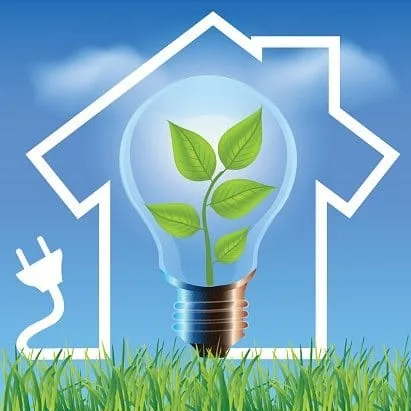With increasing global awareness about environmental sustainability, there’s a rising interest in energy efficiency. Not only does it have a positive impact on our planet, but it also substantially reduces utility bills. You don’t need to spend a fortune to make your home energy efficient. By implementing a few simple steps, you can enjoy a comfortable living space that’s kinder to the environment and your wallet.
Insulate for Success
Proper insulation keeps your home warm during the chilly months and cool during the hotter summer months. Make sure that your attic, walls, and floors have adequate insulation. Checking for drafts around windows and doors, then sealing them, can also provide extra insulation and reduce energy consumption.
Smart Lighting Choices
Swap out those old incandescent bulbs for LED or CFL ones. They consume far less electricity and last significantly longer. Consider adding motion sensors or timers to outdoor lighting, ensuring they’re only on when needed.
Upgrade Appliances
As your appliances age, consider replacing them with Energy Star-rated alternatives. These are designed to consume less electricity while offering the same or better performance.
Seal the Gaps
Tiny gaps and cracks around your home can let in drafts and waste energy. By using weather-stripping or caulk, you can ensure that the conditioned air stays in, and the external air stays out.
Water Wisely
Install low-flow faucets and showerheads to reduce your water usage. Plus, a water heater blanket can insulate your tank, making it more efficient. Choosing a tankless water heater is another excellent option, as it heats water on demand, conserving energy.
Wi-Fi Thermostats
Investing in a Wi-Fi thermostat can make a huge difference. It allows you to control your home’s temperature remotely, ensuring it’s comfortable when you’re in and energy-saving when you’re out. Plus, many models analyze your heating and cooling habits, adjusting automatically to save energy.
Strategic Landscaping
The right plants and trees around your home can act as a natural insulator. For example, deciduous trees on the south and west sides can provide shade during the summer, reducing the need for air conditioning.
Use Ceiling Fans
Ceiling fans can aid in cooling during summer and heating in winter. By ensuring they run counterclockwise in summer and clockwise in winter, you can circulate air more effectively, reducing the strain on your HVAC system.
Regular Maintenance
Maintain your HVAC system by cleaning or replacing filters regularly. This ensures that your system doesn’t have to work harder than necessary, extending its lifespan and conserving energy.
Educate and Implement
Educate all household members about the importance of energy conservation. Simple habits, like turning off lights when leaving the room or unplugging electronics when they’re not in use, can accumulate significant savings.
Every step you take towards an energy-efficient home is a step towards a sustainable future. With the strategies listed above, you’re not only investing in your immediate comfort but also contributing to a larger global initiative. Remember, a series of small changes can lead to a substantial impact.



